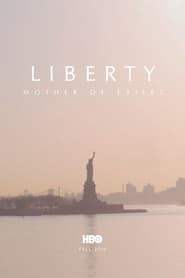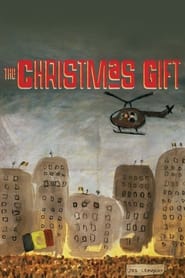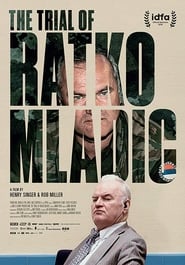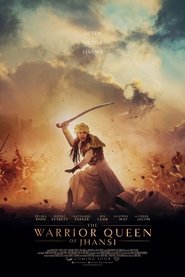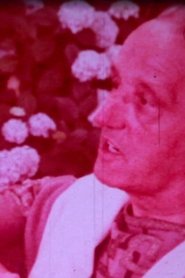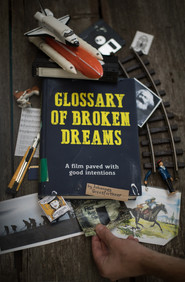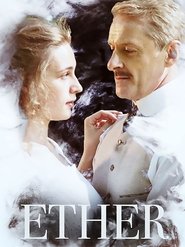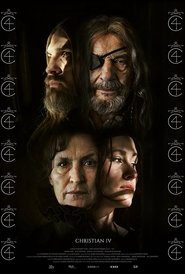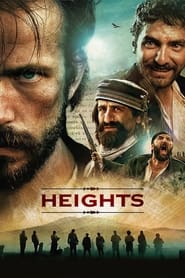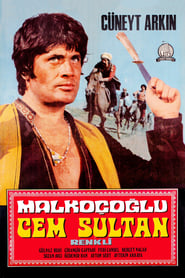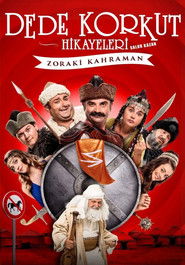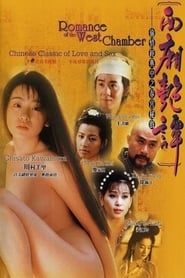Top Rated History Movies - Page 163
-
Women Is Losers
2021
Women Is Losers
2021
star 6In 1960s San Francisco, bright and talented catholic school girl Celina Guerrera survives a difficult home life by following the rules. That is until an indiscretion creates a series of devastating consequences. As Celina faces the compounded obstacles of being young and alone, she sets out to rise above the oppression of poverty and invest in a future that sets new precedents for the time. -
Nazis on Drugs: Hitler and the Blitzkrieg
2019
star 6.2For all its talk of racial, spiritual, and physical purity, the self-anointed “Master Race” harbored a secret…theirs was an axis of drug addicts. This two-hour special explores the origin, impact, and lasting effects of the state-sponsored drug use that helped build—and eventually burned—the Third Reich. Incredible new sources of information, including a detailed journal maintained by Hitler’s personal physician, reveal the extent of not just his, but the entire Nazi Party’s reliance on drugs to power their war effort. -
Liberty: Mother of Exiles
2019
star 7.5A look at the history of the Statue of Liberty and the meaning of sculptor Auguste Bartholdi's creation to people around the world. -
The Christmas Gift
2018
The Christmas Gift
2018
star 8.2A son's letter to Santa for Christmas turns his father's evening into a thriller he did not ask for. -
The Trial of Ratko Mladic
2018
star 7.2The war crimes trial of Ratko Mladic, accused of masterminding the murder of over 7000 Muslim men and boys in Srebrenica in the 90s Bosnian war, the worst crime in Europe since WW2. -
Father of Independence
2018
star 5.8upcoming Sri Lankan Sinhala biographical film directed by co-produced by -
Olimpia
2018
Olimpia
2018
star 6.6The film tells the story of Raquel, Rodolfo and Hernán, members of a brigade at the UNAM during the student movement in Mexico in 1968. Through their photographs, films and writings, we will know the history of the day that the army took the university and how their students united, shouted and never forgot. -
Leonardo: The Mystery of the Lost Portrait
2018
star 7.4Leonardo da Vinci is not just the most famous and most admired of all painters - he is an icon, a superstar. Yet, the man himself remains elusive. Accounts during his lifetime describe a man too handsome, too strong, too perfect to be accurate. But in 2009, the chance discovery in the South of Italy of an ancient portrait with strangely familiar features takes the art world by storm. Could this be an unknown self-portrait by Leonardo da Vinci? Controversy erupts among the experts. The implications of such a discovery have far-reaching consequences for our understanding of the work of this great Renaissance master. -
The Warrior Queen of Jhansi
2019
star 6.1The Warrior Queen of Jhansi tells the true story of Lakshmibai, the historic Queen of Jhansi who fiercely led her army against the British East India Company in the mutiny of 1857. From Queen Elizabeth to Queen Victoria, two-and- a half-centuries of East India Company rule will be reversed by its attempt to crush India’s Warrior Queen. Lakshmibai is known as one of the most prominent figures within the independence movement of India. The passion to free her province from colonial rule led this young woman to become one of the greatest generals of the Indian army, and to go down in history for her bravery, strategic acumen, and as a force to reckon with by the East India Company and the British Raj. The Warrior Queen of Jhansi is the story of the woman who lived and fought for the freedom of her people. -
In omaggio all’arte italiana!
2015
star 3.5Fragment of last reel from "History Lessons" presented in an installation as a special event for the Venice Biennale Arte. -
Glossary of Broken Dreams
2018
star 6.8Puppets! Pixels! Anime! Live action! Stock footage! Lumpennerd Johannes Grenzfurthner gives an ideotaining cinematic revue about important political concepts. Everyone is talking about freedom! Privacy! Identity! Resistance! The Market! The Left! But, yikes, Johannes can't tolerate ignorant and topically abusive comments on the "Internet" anymore! Supported by writer Ishan Raval, in this film, Johannes explains, re-evaluates, and sometimes sacrifices political golden calves of discourse. Not to be used with false consciousness or silicone-based lubricant. -
Ether
2018
Ether
2018
star 5At the end of the 19th century, somewhere in the outskirts of the Russian Empire, a doctor administers a lethal overdose of ether to a young woman – the object of his desire. After getting away with his crime, he finds employment in a fortress, where he continues his experiments with ether to manage pain and manipulate human behaviour. Despite his evilness, it is not too late for his soul to be saved from eternal damnation… -
Christian IV
2018
Christian IV
2018
star 5.5The film depicts the last hours in the life of great Danish King Christian IV, told exclusively from a horse carriage. The focal point is Christian's tempestuous relationship to his second wife, Kirsten Munk, involving accusations of infidelity and attempted murder. -
Heights
2017
Heights
2017
star 7.6One of the most ambitious Bulgarian projects in recent years, Heights is an adaptation of Milen Ruskov's novel of the same name, published in 2011. The film explores the Bulgarian realities of the 1870s a few years before the war, that would liberate the country from the Ottoman occupation. Directed by Victor Bojinov and adapted by Neli Dimitrova, the story follows Gicho a young man in a revolutionary group led by Dimitar Obshti, a real-life revolutionary fighting against the Turks. After a successful train robbery Obshti entrust Gicho with a special mission: to deliver a letter to Vasil Levski, the country's most famous freedom fighter, now considered hero and dubbed The Apostle of Freedom. -
Martin Luther: The Idea that Changed the World
2017
star 7The year 2017 marks the 500th anniversary of one on the most important events in Western civilization: the birth of an idea that continues to shape the life of every American today. In 1517, power was in the hands of the few, thought was controlled by the chosen, and common people lived lives without hope. On October 31 of that year, a penniless monk named Martin Luther sparked the revolution that would change everything. He had no army. In fact, he preached nonviolence so powerfully that — 400 years later — Michael King would change his name to Martin Luther King to show solidarity with the original movement. This movement, the Protestant Reformation, changed Western culture at its core, sparking the drive toward individualism, freedom of religion, women's rights, separation of church and state, and even free public education. Without the Reformation, there would have been no pilgrims, no Puritans, and no America in the way we know it. -
Malkoçoğlu – Cem Sultan
1970
star 7.1During one of his campaigns, Malkoçoğlu Ali Bey was taken prisoner by Homer and spent years in a dungeon, enduring torture. He eventually escapes. Separated from his beloved wife and his unknown son Polat, he continues his life as a cavalry leader on horseback. His son's desire to become a cavalryman brings together the father and son, who do not know each other. They are given a mission: to prevent Cem Sultan, the son of Fatih Sultan Mehmet and the blood brother of Malkoçoğlu Ali Bey, from falling into the hands of the Venetians. This film tells the story of Malkoçoğlu Ali Bey, the son of the famous raider Malkoçoğlu Bali Bey, who was educated at the Enderun-ı Hümayün, the palace university founded by Fatih Sultan Mehmed Han. He served as the governor of Sofia and was martyred in the Battle of Çaldıran in 1514. -
The Day Hitler Died
2015
The Day Hitler Died
2015
star 6.8The story of Hitler’s final hours told by people who were there. This special features exclusive forgotten interviews, believed lost for 65 years, with members of Hitler’s inner circle who were trapped with him in his bunker as the Russians fought to take Berlin. These unique interviews from figures such as the leader of the Hitler Youth Artur Axmann and Hitler’s secretary Traudl Junge, have never before been seen outside Germany. Using rarely seen archive footage and dramatic reconstruction, this special tells the story of Adolf Hitler’s final days in his Berlin bunker. -
Dede Korkut Hikayeleri Salur Kazan: Zoraki Kahraman
2017
star 4.3Will Salur be able to rescue his loved ones who have been taken captive by the bad guys? Will the captive tribe be able to defeat the bad guys? In Salur Kazan: The Reluctant Hero, the fairy tales we all know are presented to us again in a humorous and modern language. -
Romance of the West Chamber
1997
star 5.2Cheung, a 23-year-old unmarried travelling scholar, stops by the monastery, where he sees a beautiful woman. Against the rules, Monk Faben allows Cheung to stay and woo the girl, Ann-Ann. She is shy, and also the Prime Minister's daughter, so the wooing is arranged by Ann-Ann's maid Hung.
 Netflix
Netflix
 Amazon Prime Video
Amazon Prime Video
 Apple iTunes
Apple iTunes
 Apple TV Plus
Apple TV Plus
 Disney Plus
Disney Plus
 Google Play Movies
Google Play Movies
 Paramount Plus
Paramount Plus
 Hulu
Hulu
 HBO Max
HBO Max
 YouTube
YouTube
 fuboTV
fuboTV
 Peacock
Peacock
 Peacock Premium
Peacock Premium
 Amazon Video
Amazon Video
 The Roku Channel
The Roku Channel
 AMC+
AMC+
 Kocowa
Kocowa
 Hoopla
Hoopla
 The CW
The CW
 Vudu
Vudu
 Starz
Starz
 Showtime
Showtime
 PBS
PBS
 Pantaflix
Pantaflix
 FXNow
FXNow
 Tubi TV
Tubi TV
 Kanopy
Kanopy
 Comedy Central
Comedy Central
 Crunchyroll
Crunchyroll
 Microsoft Store
Microsoft Store
 Redbox
Redbox
 Sun Nxt
Sun Nxt
 ABC
ABC
 DIRECTV
DIRECTV
 Crackle
Crackle
 Fandor
Fandor
 Plex
Plex


